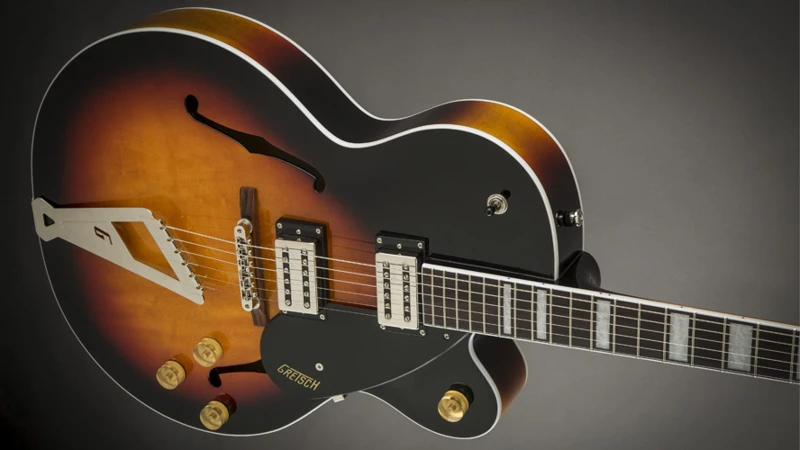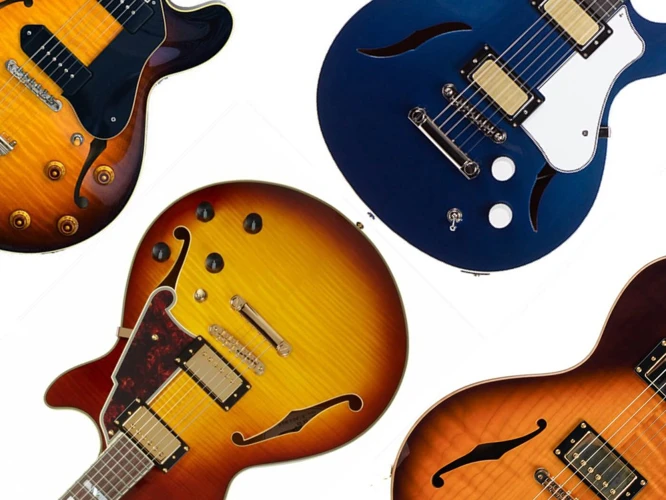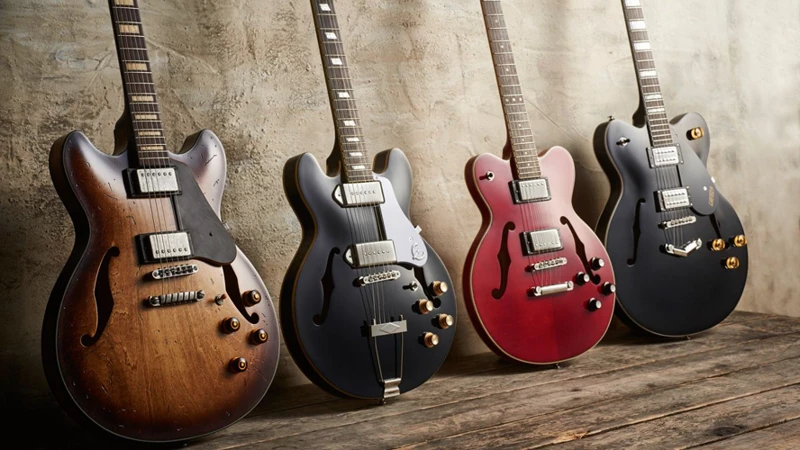When it comes to choosing a guitar, one of the decisions that players often face is whether to go for a semi-hollow or a hollow body guitar. Both types have their own unique characteristics and advantages, making it important to understand the differences between them before making a choice. In this article, we will explore the key distinctions between semi-hollow and hollow guitars to help you make an informed decision based on your playing style and musical preferences.
Semi-Hollow Guitars
Semi-hollow guitars are a popular choice among players looking for a versatile instrument that offers a blend of characteristics from solid-body and hollow-body guitars. These guitars feature a solid block of wood running through the center of the body, with hollow wings on either side. This design helps to reduce feedback while still maintaining some of the resonance and warmth associated with hollow-body guitars.
Construction
The construction of a semi-hollow guitar typically involves a combination of solid and hollow sections. The solid block running through the center adds sustain and helps to reduce feedback, making it a suitable choice for players who enjoy high-gain settings. The hollow wings contribute to the overall acoustic tone of the guitar, providing a rich and vibrant sound that is ideal for blues, jazz, and other genres that benefit from a warm tone.
Sound
Semi-hollow guitars are known for their versatility in terms of sound. They can produce a wide range of tones, from bright and twangy to warm and mellow, depending on the pickups and playing style. The combination of the solid center block and hollow wings gives these guitars a unique sonic character that is well-suited for various playing techniques and musical genres.
Playability
One of the advantages of semi-hollow guitars is their comfortable playability. The body shape and size are often similar to that of solid-body guitars, making them easy to handle and suitable for long playing sessions. The balance between the solid and hollow sections also contributes to the overall weight distribution, ensuring that the guitar is not too heavy or cumbersome to play.
Hollow Guitars
Hollow body guitars, also known as jazz guitars, are revered for their rich, warm tone and acoustic-like resonance. These guitars have a fully hollow body without a solid center block, allowing the sound waves to resonate freely within the body cavity. Hollow guitars are popular among jazz, blues, and rockabilly players for their distinctive sound and vintage aesthetic.
Construction
The construction of a hollow body guitar involves a fully hollow body without any solid sections. This design allows the sound to resonate and reverberate within the body cavity, producing a rich and full-bodied tone that is highly sought after by many players. Hollow guitars are often larger in size compared to semi-hollow or solid-body guitars, contributing to their unique sound characteristics.
Sound
Hollow guitars are prized for their warm and resonant sound quality. The acoustic-like properties of these guitars make them ideal for genres that require a smooth and mellow tone, such as jazz and blues. The hollow body construction enhances the natural sustain and harmonics of the instrument, creating a lush and expressive sound that is perfect for melodic playing and chordal accompaniment.
Playability
While hollow guitars offer exceptional sound quality, they may not be as versatile in terms of playability compared to semi-hollow or solid-body guitars. The larger body size and fully hollow construction can make these guitars more prone to feedback, especially at higher volume levels or when using distortion effects. However, players who appreciate the unique tone and feel of hollow guitars often find ways to work around these limitations.
Pros and Cons
Semi-Hollow Guitars
Pros:
– Versatile sound that can cater to a wide range of musical styles
– Reduced feedback compared to hollow body guitars
– Comfortable playability similar to solid-body guitars
Cons:
– Not as resonant or acoustic-like as hollow body guitars
– May lack the full-bodied tone characteristic of fully hollow guitars
Hollow Guitars
Pros:
– Rich, warm tone ideal for jazz, blues, and other genres
– Acoustic-like resonance and sustain
– Vintage aesthetic appeal
Cons:
– Prone to feedback at higher volume levels
– Limited versatility compared to semi-hollow or solid-body guitars
Which One Should You Choose?
The decision between a semi-hollow and a hollow body guitar ultimately comes down to your playing style, musical preferences, and the sound you are looking to achieve. If you value versatility and comfort in playability, a semi-hollow guitar may be the best choice for you. On the other hand, if you are drawn to the warm, resonant tones of jazz and blues music and appreciate the vintage aesthetic of hollow body guitars, then a hollow guitar could be the perfect fit.
Consider trying out both types of guitars in a music store or at a guitar shop to see which one feels and sounds right for you. Keep in mind that personal preference plays a significant role in choosing a guitar, so trust your ears and hands to guide you in making the right decision.
Looking to explore the differences between semi-hollow and hollow guitars for country music? Check out our articles on semi vs solid electric country guitars, solid vs hollow guitars for country music, and semi-hollow electric guitars country music facts for more insights. Curious about hybrid vs flatpicking country guitar techniques or the debate between thin vs thick picks in country music? We’ve got you covered!
Conclusion
In conclusion, both semi-hollow and hollow body guitars have their own unique characteristics and advantages that cater to different playing styles and musical genres. Whether you opt for the versatility of a semi-hollow guitar or the warm, resonant tones of a hollow body guitar, each type offers a distinct playing experience that can enhance your musical journey. Take the time to explore and experiment with both types of guitars to find the one that suits your preferences and inspires your creativity as a guitarist.



